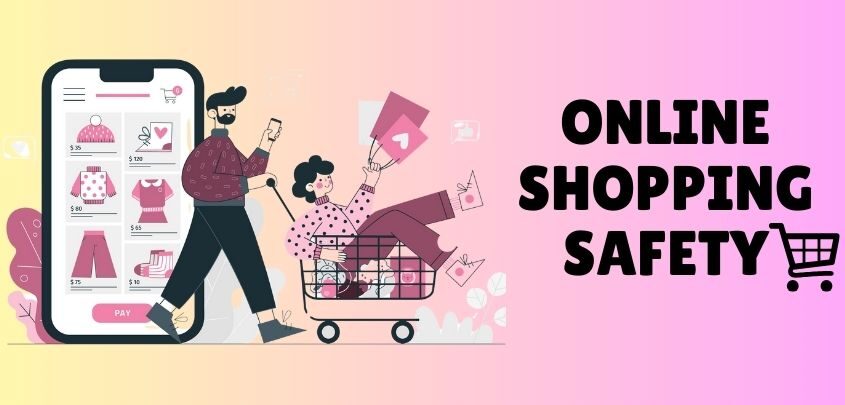
30, Apr, 2024
Online Shopping Safety: Guidelines To Protect Your Finances
Online shopping has transformed the way we buy products and services. With a few clicks, you can order anything from groceries to electronics and have it delivered to your door. The ease is unparalleled, and the selection is extensive. However, as internet shopping becomes more widespread, potential risks linked with it increase. Cybercriminals are continuously finding new ways to deceive naïve customers, such as establishing fake websites or phishing for personal information. Despite these concerns, you can still have a secure online shopping experience if you take the necessary steps. In this article, we will look at whether internet shopping is safe and offer helpful tips on how to shop securely online.
Is online shopping safe?
Given the frequency of cybercrime, it is understandable to wonder if online buying is safe. The answer is often yes, but it necessitates caution and awareness of potential hazards. The most common internet shopping threats are:
- Identity Theft: Cybercriminals can use personal and financial information to make unlawful transactions or carry out other fraudulent activities.
- Fake Online Stores: Some websites imitate reputable sellers, fooling customers into purchasing things that may not arrive or are counterfeit.
- Unencrypted Data: If a website does not use secure encryption, your sensitive information may be intercepted.
- Data breaches: Hackers may attack e-commerce websites, exposing customer information.
- Fake Reviews: Some online shops use fake reviews to trick clients into thinking they are trustworthy.
- Phishing: This occurs when scammers send emails or messages impersonating reputable retailers in order to deceive recipients into clicking malicious links or supplying personal information.
How to protect yourself while shopping online.
- Use a Secure Connection: Always shop from a secure location, preferably your own home network. If you must use public Wi-Fi, make sure it is encrypted or use a Virtual Private Network (VPN) to increase security.
- Shop on Trusted Websites: Stick with reliable retailers who have received positive feedback from customers in the past. If you’re considering a new retailer, read online reviews and look for contact information, such as a phone number and physical address.
- Look for secure websites: Make sure that the website’s URL starts with “https:” and has a padlock icon in the browser’s address bar, indicating a secure and encrypted connection.
- Avoid Offers That Seem Too Good to Be True: If a deal appears to be exceptionally cheap or offers more than expected, proceed with caution. It could be a hoax intended to obtain your personal information or offer you counterfeit goods.
- Pay with credit cards . Credit cards provide superior fraud protection and reduce your liability in the event of fraudulent charges. Avoid using debit cards or checks because they lack comparable consumer protections.
- Create Strong and Unique Passwords: If a website requires an account, choose a strong and unique password. To create and maintain strong passwords, consider using a password manager.
- Check Privacy Policies: Read the website’s privacy policy to see how it collects, uses, and stores your information. Avoid websites that share or sell client information without permission.
- Use Reliable Internet Security Software. A complete antivirus or internet security package can help you avoid malware, phishing attempts, and other online hazards.
- Monitor Your Credit Card Statements: Check your credit card statements on a regular basis to ensure there are no fraudulent charges. If you discover anything unusual, immediately notify your credit card company.
- Be wary of phishing emails and fake links: Scammers frequently send phishing emails that appear to be from real retailers. Avoid clicking on links in emails or messages; instead, enter the retailer’s URL straight into your browser’s address bar.
By following these tips, you can considerably reduce the dangers associated with online purchasing and have a more secure shopping experience.
